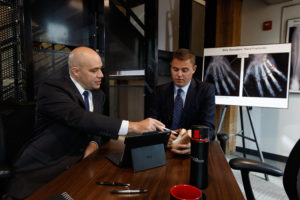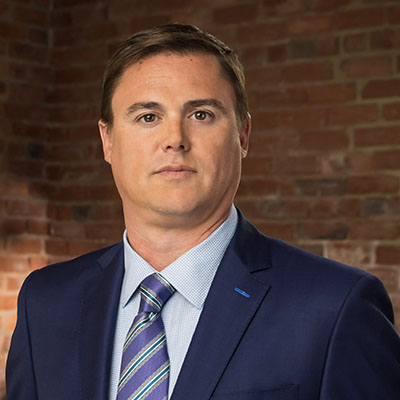As a personal injury attorney, I find causation of claimed damages to be the most common point of disagreement between an injured claimant and the negligent party’s insurance company. Causation can be the most difficult element of the personal injury claim to explain to an injured person as the personal injury process unfolds.
In the aftermath of a traumatic event, causation – at least as it is defined in lay terms – is very clear in the minds of the vast majority of my clients. They had a baseline pre-incident physical condition, they were involved in a traumatic event, and their physical condition changed. The fact that the traumatic event caused the change in their overall health could not be more clear. They know the trauma caused their injury based on what they have experienced both before and after the traumatic event. Unfortunately, it isn’t about what you know, it’s what you can prove. In cases that involve broken bones, traumatic brain injuries, paralysis, or other catastrophic injuries, proving causation is straightforward. There is an x-ray or an MRI that conclusively establishes a new injury resulting from substantial trauma. Those cases are the exception; not the rule.
How Do Unknown Pre-Existing Conditions Affect My Claim?
Far more individuals receive less obvious injuries. In those cases, pre-existing conditions such as arthritis, previous surgeries to the affected area of the body, and/or years of post-incident medical treatment for ongoing pain make causation far more difficult to establish.
Virginia law requires a personal injury claimant to prove by the greater weight of the evidence that the injuries they are claiming (both in the past and those reasonably expected in the future) were caused by the negligence of another (Virginia Model Jury Instruction 9.000). Insurance adjusters and defense attorneys will often claim that the ongoing pain, and the medical expenses incurred to treat that pain, are not related to the defendant’s negligent act, but instead are related to the claimant’s pre-existing condition, a subsequent event or injury (like a fall), or the natural degeneration of the human body. If they are successful in making that argument, the insurance carrier asked to pay the claim is not legally responsible to pay for that portion of the claimed damages.
Arthritis and Causation
According to the Centers for Disease Control and Prevention, 23% of the American population suffers from some form of arthritis. That’s more than 54 million people. When an injured person injures their neck in a rear-end collision, goes through a period of unsuccessful conservative medical care, and subsequently gets an MRI of their neck months after the collision, there is a substantial probability that the MRI will reveal underlying degeneration in that person’s neck. The insurance company will then send that radiologic film to a hired expert who will opine that the present pain the claimant is experiencing is not related to the rear-end collision but is instead related to underlying arthritis that the claimant wasn’t even aware of prior to the crash.
The Importance of Acting Early
To combat this common insurance defense practice it is critically important to speak to the treating medical providers about the nature of any underlying or pre-existing medical condition, to give the treating medical providers a clear and precise history as to the pre-incident baseline medical condition, to describe abilities and activity levels prior to injury and the subsequent change in lifestyle, and to avoid gaps in medical treatment that provide the defense with windows of opportunity to demarcate related and purportedly unrelated treatment.
Identifying possible causation issues early and having clear and candid conversations with treating medical providers throughout the course of post-accident care can make all the difference when the insurance company wants to get into a battle of the experts on issues of causation.
The experienced attorneys at Allen & Allen are familiar with these challenges and navigate them every day. If you or someone you know has been injured, call us at 1-800-768-2222 for a free consultation or fill out our contact form.




